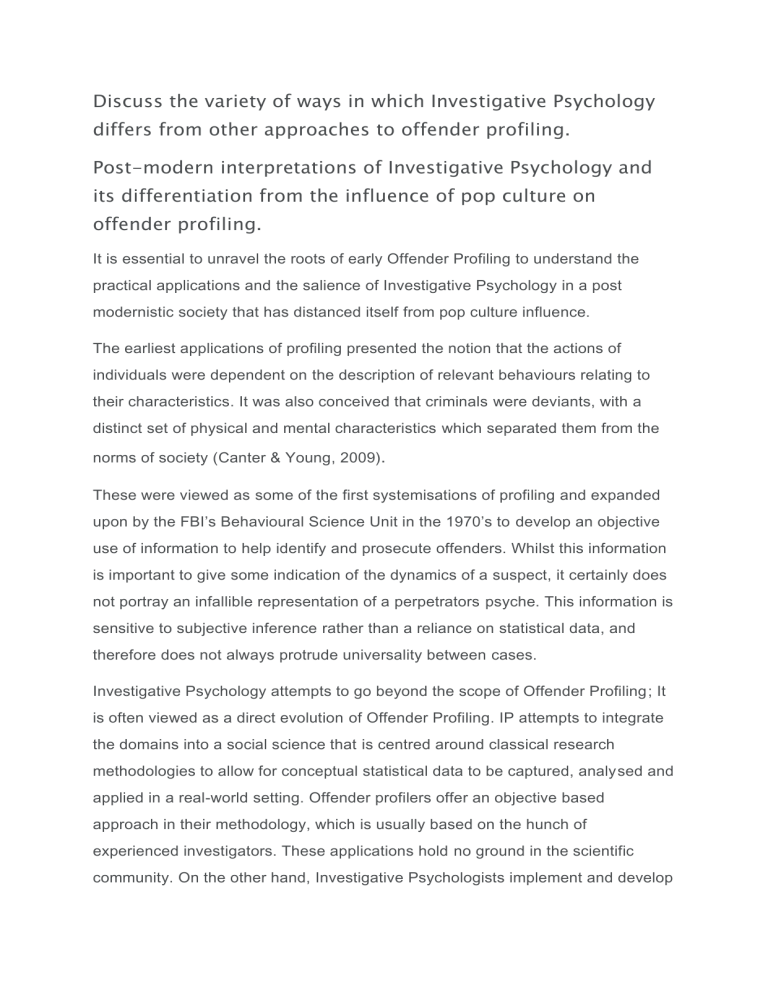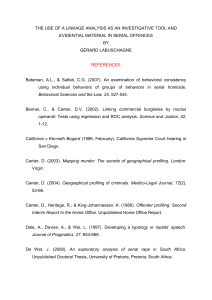
Discuss the variety of ways in which Investigative Psychology differs from other approaches to offender profiling. Post-modern interpretations of Investigative Psychology and its differentiation from the influence of pop culture on offender profiling. It is essential to unravel the roots of early Offender Profiling to understand the practical applications and the salience of Investigative Psychology in a post modernistic society that has distanced itself from pop culture influence. The earliest applications of profiling presented the notion that the actions of individuals were dependent on the description of relevant behaviours relating to their characteristics. It was also conceived that criminals were deviants, with a distinct set of physical and mental characteristics which separated them from the norms of society (Canter & Young, 2009). These were viewed as some of the first systemisations of profiling and expanded upon by the FBI’s Behavioural Science Unit in the 1970’s to develop an objective use of information to help identify and prosecute offenders. Whilst this information is important to give some indication of the dynamics of a suspect, it certainly does not portray an infallible representation of a perpetrators psyche. This information is sensitive to subjective inference rather than a reliance on statistical data, and therefore does not always protrude universality between cases. Investigative Psychology attempts to go beyond the scope of Offender Profiling; It is often viewed as a direct evolution of Offender Profiling. IP attempts to integrate the domains into a social science that is centred around classical research methodologies to allow for conceptual statistical data to be captured, analysed and applied in a real-world setting. Offender profilers offer an objective based approach in their methodology, which is usually based on the hunch of experienced investigators. These applications hold no ground in the scientific community. On the other hand, Investigative Psychologists implement and develop empirical frameworks for differentiating criminals. Models of behaviour were developed to identify strong statistical significant correlations between different types of arsonists and the typology of their crimes, with the ability infer what type of arson certain individuals were more likely to commit. These models have been applied to other aspects of serious and violent crimes such as serial murder and terrorism. Furthermore, the implications from Investigative Psychology resonate beyond criminality. Theories and models can be applied in other areas of psychology and social sciences that emphasis focus on problem solving (Canter & Youngs, 2009).





